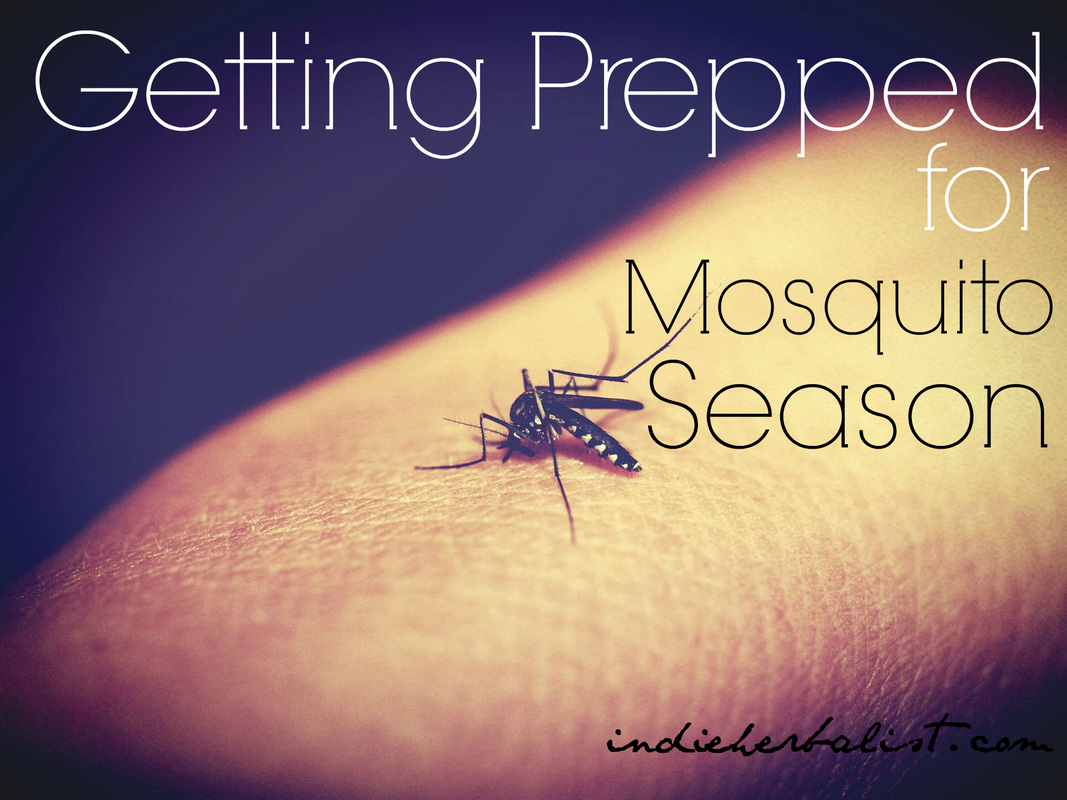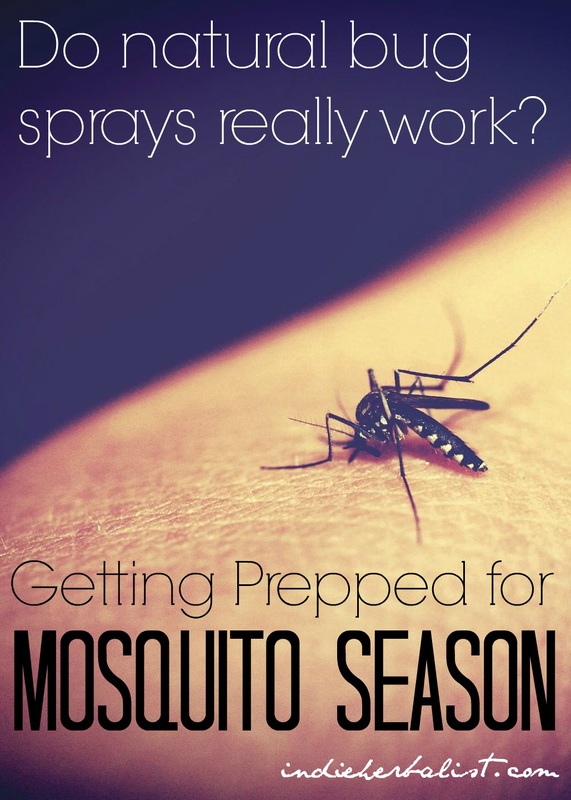Links contained in this post and elsewhere on my website may include affiliate links. When you make a purchase through these links, I earn a commission at no additional cost to you. I only link to products and services that I love - and that I think you will love, too!
Mosquito vectored diseases are nothing new, even here in the United States. The most common locally-transmitted mosquito borne illness in the US is West Nile Virus, but several other types of encephalitis crop up during the summer months, and even malaria makes an occasional appearance. Other illnesses, like dengue, are usually found only in returning travelers. You can find out more about these diseases in the overviews in the middle of this article, including links to the CDC pages with the best info on each one.
For the most part, all of these illnesses are manageable in the United States thanks to our current medical infrastructure and the prevalence of air conditioning and other First World Niceties. It’s good to be aware of the health threat that mosquitoes can pose, but it shouldn’t be a particularly frightening spectre haunting your plans for summer fun. Don’t get scared, get prepared! Right? Right.
What has everyone spooked about Zika, though, is that it spread rapidly in South America and has been linked to outbreaks of a serious birth defect, microcephaly. There’s the potential that it could become endemic in the United States, as well. That doesn’t mean that it WILL, but the CDC is playing things safe with travel warnings and bumping up the mosquito public health education. So let’s take a look at what’s going on with Zika, mosquito born illnesses in the US, and how you can stay safe.
What is Zika?
According to the CDC, Zika was discovered in 1947 in Uganda. It eventually jumped from it’s original hosts (monkeys) to humans, and since then there have been outbreaks mainly in Africa and Southeast Asia. The first reported case in Brazil happened in May, 2015. Then in February of 2016, the World Health Organization determined that Zika is now a Public Health Emergency of International Concern.
Most people who are infected are asymptomatic, but the most common symptoms are rash, fever, joint pain, red eyes, muscle pain, and headache. Symptoms usually last about a week.
Zika is believed to cause birth defects when pregnant women become bitten and infected by mosquitoes carrying the virus, and the disease can also be transmitted to women via the semen of infected partners. The CDC is also currently investigating a possible link between Zika and an immune system disorder known as Guillain-Barre syndrome.
At Risk Areas
Not everyone in the United States lives in an area that is at a high risk for a Zika outbreak.
You can see a map from the National Center for Atmospheric Research that outlines the cities it believes to be most at risk if you follow this link. Risk is determined both by mosquito population and the number of travelers arriving from endemic areas. Florida is a high risk state, as are parts of Louisiana, Georgia, South Carolina, and Alabama. High risk cities include:
- Miami
- Orlando
- Tampa
- Tallahassee
- Jacksonville
- New Orleans
- Savannah
- Mobile
- Charleston
A few of the larger moderate risk cities include:
- Houston
- Atlanta
- New York City
- Raleigh
- Washington, DC
Other Mosquito-Transmitted Illnesses
Even if you aren’t concerned about prepping for a Zika outbreak, mosquito season itself deserves a little prepping. And if you’re prepared for mosquito season, you’re also much more prepared just in case something does happen with Zika virus in the U.S.
Thankfully, mosquitoes are mostly just a nuisance in our part of the world. If you’ve ever been bitten by one, you know how annoying the bites are. They usually leave a small, itchy bump, but it can turn into quite a welt if you are sensitive. There are a few reasons that we should take mosquitoes more seriously, though- potential Zika outbreak aside. Here’s some food for thought:
West Nile Virus is one of the most common illnesses passed along by mosquitoes in the United States. It’s passed along to humans when mosquitoes bite infected birds. It’s considered seasonally epidemic here, with over 2,000 cases reported in 2015. Of people who become infected, about 1 in 150 people have severe symptoms and about 20% feel moderately ill, but most people are asymptomatic.
Here’s the CDC Fact Sheet
Eastern Equine Encephalitis
Usually this disease is only transmissible from mosquitoes to horses, but it occasionally infects humans. Usually around 8 human cases are reported annually. Unfortunately, it is one of the most severe when it makes the jump to humans, with a 33% mortality and “significant brain damage in most survivors.”
More Info Here and Here
Lacrosse Encephalitis
Mostly reported in the Upper Midwest, but also along the Gulf Coast, where cases can sometimes occur off season, in winter. There are usually 80-100 cases annually of the disease becoming neuroinvasive, but the CDC believes that milder cases are under-reported.
Read More From the CDC
St Louis Encephalitis
Averages about 7 cases annually, and occurs mainly in older adults. Most common in the Eastern and Central states.
Find Out More
Dengue
Usually, cases of Dengue in the states are from travelers returning from dengue endemic areas, but small outbreaks occurred in Hawaii in 2001, and in Texas in 2005. It’s endemic in Puerto Rico, US Virgin Islands, Guam, and Samoa. There are four strains of the virus currently. Worldwide, 50 to 100 million cases occur annually. In some cases, the infection becomes severe and is called Dengue Hemorrhagic Fever (DHF). The mosquitoes that transmit dengue are the same that can transmit Zika.
More Info on Dengue
Chikungunya
Daytime mosquitoes that also transmit dengue and zika can potentially transmit chikungunya as well, but so far all of the 600 or so reports of this virus reported last year in the US were in travelers returning home from endemic areas. In the typical MO for a mosquito borne virus, chikungunya can cause fever, rash, joint pain, headache, and muscle pain.
Here’s the CDC Fact Sheet on Chikungunya
Malaria
Malaria cases in the United States are usually travelers returning from endemic areas, but this hasn’t always been the case. Up to 2,000 cases are reported annually, but only 63 cases of locally transmitted malaria have been reported in the US between 1957 and 2015, so it’s generally classified as eliminated. The problem here is that the three types of mosquitoes responsible for transmitting malaria are all still widely found in the US, and the CDC recognizes that there is always the risk that it could be reintroduced. Outbreaks occur in parts of Mexico.
Get All the Facts about Malaria Here
Get Prepped for Mosquitoes
Now that you know more about the reasons you should be getting prepped for mosquito season, here are a few basic precautions that you can take to minimize your chances of catching an illness from a mosquito bite.
Mosquitoes usually become active when the temps stay above 50F and go dormant again when temperatures dip lower than that. For most people, that means that winter is a mosquito-free season, but if you regularly have winter warm spells you may need to be more cautious.
Getting prepped for mosquito seasons means arming yourself with effective repellents, eliminating mosquito breeding zones from your yard and garden, and making sure you can exclude mosquitoes from your home. Here are some tips:
Stock Up On Bug Spray
If you live in an area with a high risk of disease from mosquitoes, use an EPA registered repellent. Consumer reports tested a few natural brands, and found that most offered mild protection for only an hour- if they didn’t fail immediately. Sorry, EO fans. I wish we could trust our herbs on this one, but the truth is, we can’t. So don’t. It’s not worth the risk. In a low risk area, you may be able to get away with a homemade repellent like this one and remembering to wear light colored clothing, but then again you may have other insect pests like ticks to be concerned about, too.
Thankfully, DEET isn’t the only choice anymore, and there are plenty of safer options that are even more effective. OLE (synthetic Oil of Lemon Eucalyptus) and Picaridin (synthesized from piperine in black pepper) are both on this list. The fact that they are synthesized and not the essential oils is pretty important, since it means the products are standardized and contain a consistent amount of the active ingredient.
I use these two brands of insect repellent: Repel and Sawyer’s. Repel is my choice for when I’m working in the garden and don’t mind smelling like a lemon, but I prefer Sawyers when we are out hiking, It lasts longer and has less of a fragrance. Repel doesn’t smell unpleasant, but I prefer to be unscented when I’m out hiking because there’s a better chance of seeing wildlife!
Here are some links to more great info on selecting and using an insect repellent:
CDC Tips for Avoiding Mosquito Bites
Consumer Report Ratings
Tips for applying repellent
Mosquito Patrol
The CDC recommends a weekly mosquito patrol to dump out any sources of stagnant water, which provides prime mosquito breeding territory. Eliminate standing water where ever you can. Bee baths and bird baths should be replenished daily, anyway, as should livestock water tanks or buckets and your pet’s water bowls, but this important for your health during mosquito season and not just their wellbeing! Cover or seal your rain barrels. Remember to check your septic system too- it needs to be covered with mosquito proof mesh or a plastic cap!
Mosquito Proofing
Indoors, make sure your window screens are secure and aren’t torn. Check for cracks in the window casings, and check your screen doors, too, if you have them. They should fit flush to the door frame without any gaps, and the screens should be in good repair. Get the AC unit checked for a tune up to make sure it’s functioning well, since that will help minimize your mosquito exposure, too.
Being Ready for Mosquito Season
Knowing that you are all set for mosquito season can provide peace of mind as well as a modicum of comfort! Other preps you might want to consider include:
- Adding a mosquito net to your camping supplies or bug out bag
- Spraying down tents and outdoor equipment with a permethrin spray
- Giving the extra change of clothes in your bug out bag a spritz with permethrin, too!
- Adding, checking, or refreshing a travel sized repellent in your everyday carry supplies
Here’s to enjoying a mosquito free summer!
All the Best,
Agatha


